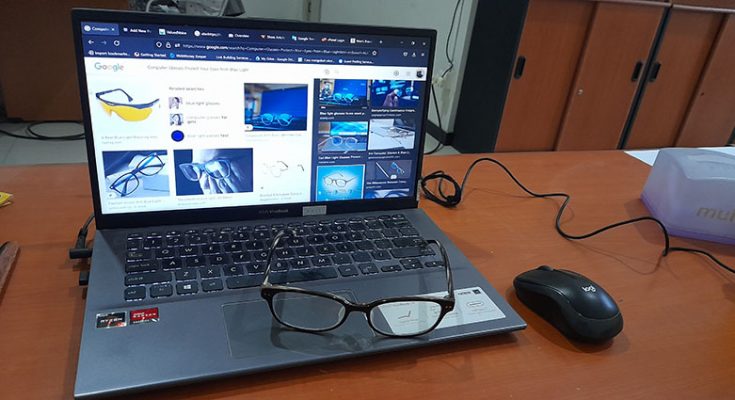Computer glasses are a great option to protect your eyes from blue light. This blue light causes your eyes to work harder to perceive contrast and can lead to headaches and migraines. It can also cause watery eyes. By wearing computer glasses with blue light filtering lenses, you will have a better chance of preventing these problems.
Benefits
Computer glasses are a great way to protect your eyes from the harmful blue light that’s emitted from digital screens. This type of light affects your eyesight and interferes with your circadian rhythm. It can cause dry eyes, headaches, and blurred vision. Wearing computer glasses can help alleviate these symptoms, as they filter out 95% of the harmful blue light. These glasses can also help you to get a better night’s sleep.
In addition to reducing eye strain, computer glasses can also improve your eye focus. Computer screens have much less contrast than a printed page, so glasses help people to get a better focus on the screen without squinting. They also help people who have astigmatism, which causes blurred vision. Computer glasses are designed to correct this problem by measuring the eye’s pupils and ensuring that the optical center of the lens is front and center. Computer glasses also help people maintain good posture while using the computer, preventing the strain on their backs and necks.
Types
There are different types of computer glasses. Some of them are single vision and others are progressive. A single vision computer glass has an upper portion for viewing the computer screen, and a lower portion for reading and seeing closer objects. A progressive computer lens is a good option if you need to see a wide range of distances and objects without sacrificing your near vision.
Many of these glasses come with an anti-glare coating that can help with glare and reflection. There are also photochromic lenses that can protect your eyes from the damaging UV rays and blue light. These glasses automatically darken when exposed to sunlight, reducing your chances of developing computer vision syndrome.
Computer glasses also provide additional benefits like improving your posture and preventing eyestrain.
Cost
Many companies subsidize the cost of computer glasses, and it’s not difficult to ask them for a reimbursement. Ask your patient about their company’s coverage or contact the Human Resources or ergonomics departments to request a reimbursement. If the employer doesn’t provide coverage, you can ask for assistance from the company’s computer glasses manufacturer, which supplies kits of letters and forms that can be submitted to the company.
The right pair of computer glasses can reduce eye strain and improve posture. They are designed to give you the best possible viewing angle, and should be customized to fit your needs. You can also use computer glasses with tints that can reduce light entering your eyes.
Prescription
Prescription computer glasses are a great way to protect your eyes from the harsh light of a computer screen. They can also increase your intermediate vision, which can help you focus on your computer screen easier. A good pair of computer glasses will also have anti-reflective coatings and a contrast-enhancing tint to cut down on distracting reflections. Some also block blue light, which is linked to digital eye strain and disrupted sleep patterns.
Choosing the correct pair of computer glasses requires a consultation with an optometrist. The eye care professional should understand the tasks you perform on a computer, including your personal preferences and visual abilities. In addition, your eye care specialist should consider the distance between your eyes and the screen, as this will influence how your glasses work.
Blue light filter
Computer glasses that block blue light can help you sleep better at night. These glasses are available in various colors, with orange lenses being the most effective. The other colors range from clear to a deep red. These filters do not suppress melatonin, but they do help with sleeping. To get the best effect, wear these glasses before bed, or else you will risk having trouble sleeping at night.
Computer screens emit blue light, which is harmful to the eye and can cause headaches, dry eyes, and tiredness. Computer screens can cause computer vision syndrome, or digital eyestrain, which can cause eye strain. Those who spend hours in front of a computer screen are at greatest risk of developing this condition.





